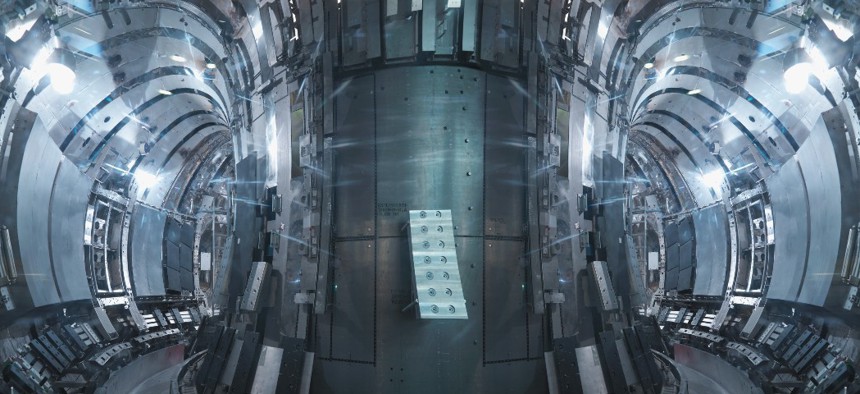Biden Aims For Energy Independence, Climate Health With Nuclear Fusion Technology Initiatives

Monty Rakusen/Getty Images
The White House held a summit discussion on its new fusion technology research investments.
The Biden-Harris White House announced a new commitment in commercial fusion as a means to a cleaner energy economy with a historic summit, featuring the private and public sectors’ commitment to furthering the U.S. fusion energy industry.
Fusion energy is produced with the combination of atoms to create larger, heavier atoms that act as a means to generate electric power. Current nuclear power plants operate through fission, or splitting atoms, which has the drawback of creating unstable waste material. Fusion doesn’t have this problem.
Launching the summit on Thursday was Alondra Nelson, the deputy director for Science and Society in the White House Office of Science and Technology Policy. She described the administration’s new initiatives to further solar and wind power cultivation to provide electricity for American consumers.
“We believe that when it comes to fusion, the time is now,” Nelson said. “And the time is now because we have in President Biden a leader who's been clear that we will decarbonize our economy by 2050. This is why fusion is one of a much larger suite of clean energy game changers that will help America reach that goal commensurate with the scale of the climate change that climate change requires.”
The Fusion Summit comes as the U.S. seeks energy independence, as Russia’s war on Ukraine forced the U.S. to impose sanctions that limit its ability to access Russia’s oil.
One entity in partnership with the OSTP is the Department of Energy National Laboratories.
“Researchers have long believed that fusion can just unlock this new paradigm in energy if we could just crack the code,” said Energy Secretary Jennifer Granholm. “We are launching an agency wide—a DOE wide— fusion initiative. And so going forward DOE is going to be coordinating all Fusion Energy Research under one umbrella to seize the opportunity to advance the technology.”
A key part of the program will be advancing the research and development of fusion technologies so the U.S. can maintain a competitive edge. Granholm said that a new round of $50 million in federal funding will go to support this research.
She said the funding is not yet enough, but a good start.
Gina McCarthy, the inaugural White House National Climate Advisor, said new fusion technologies stand to support the U.S.’s energy independence, climate goals and economic health.
“Fusion energy could provide a virtually limitless source of clean electricity and heat available when and where it's needed,” McCarthy said. “Getting fusion technology to viability could be a critical tool for reducing emissions while meeting our clean energy needs. And of course, we could create really good jobs in the process.”






